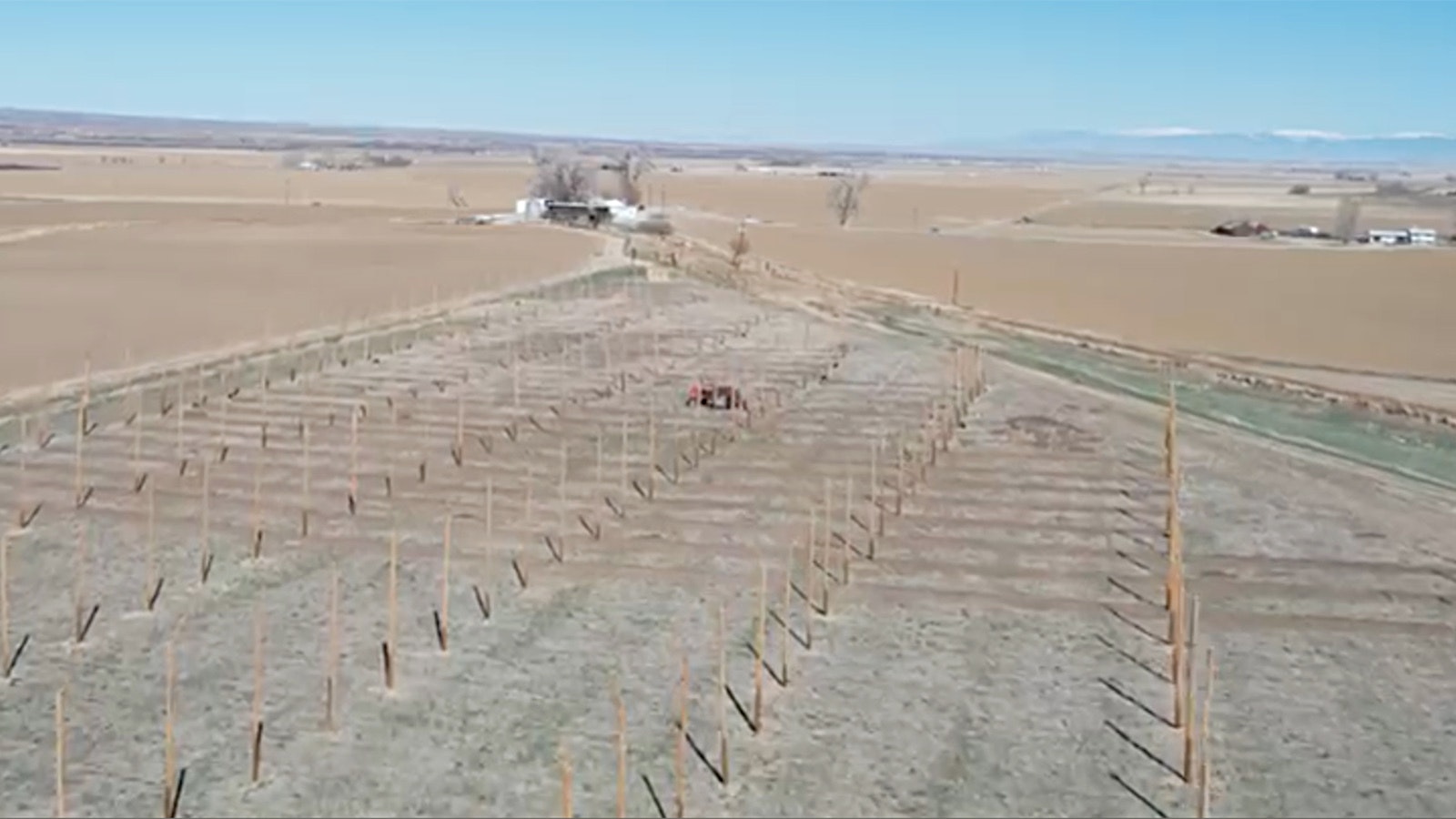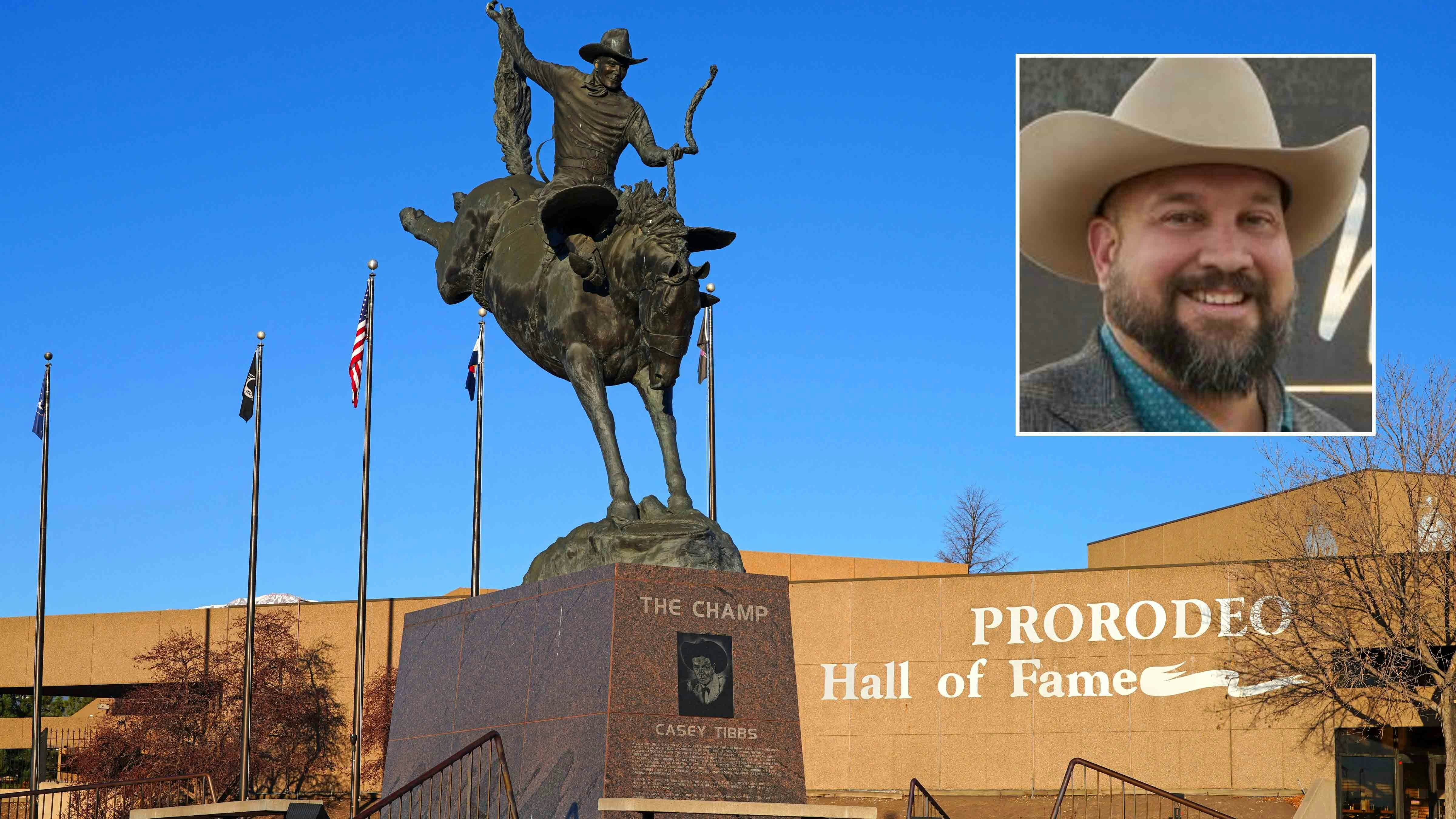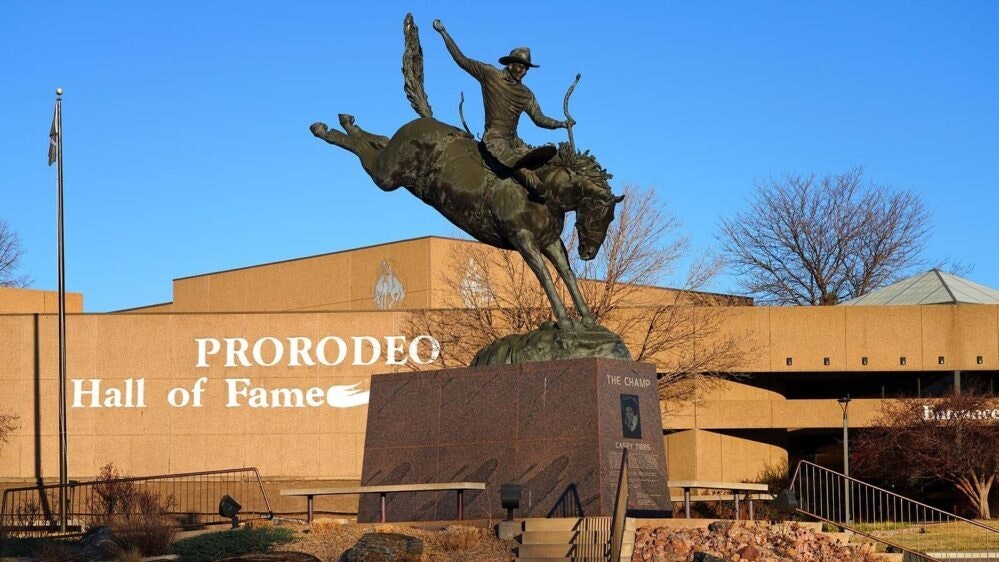Bill Pennington says he probably should have just planted alfalfa on this 40-acre “piece of dirt” located about 4 miles northeast of Worland.
Two years ago, which is when Pennington became a farmer, he planted 7 acres of hops instead. And so far it’s been an uphill struggle wherein he says he did nearly everything wrong the first time.
But In spite of the struggles, the crop is now established and by late next summer Pennington hopes to have a product www.hillcresthops.comto take to market. If all goes as planned, Wyoming craft brewers will be able to market beers made from all in-state ingredients, a claim many of them are anxious to make, Pennington says.
However, a multitude of difficult challenges stand in his path including a large capital investment, deficient soils, uncertain and unstable markets, needed farm expansion and obtaining or building specialized equipment.
Hop To It
Hops, is a perennial bine (not a vine but similar) that grows up a trellis system made with poles and cable, used to flavor beer. The plant produces a dense, acidic cone that is separated at harvest time, dried, then frozen and later pelletized.
Hops are the second-fastest growing weed in the world, behind Pacific kelp, which can grow 10 to 15 feet in a week. Hops will grow two to four inches per day under ideal conditions.
So growing a hearty weed, what’s hard about that?
Well, first, although Washakie County is one of Wyoming’s most prolific agricultural counties, the soils here are heavy.
“The soil here is horrible,” he said. “It’s full of bentonite and clay which prevents water from permeating.”
Second, this is the first commercial hops operation in Wyoming. The Pacific Northwest states of Oregon, Idaho and Washington produce the hops grown in the West. There’s little to go on as far as practical knowledge of how the crop will do in central Wyoming.
In order to take care of the crop at harvest time, he needs to build a large building with a huge dryer to take the moisture out of the hops. Harvest is a time-sensitive process. Within five hours of cutting the vines and separating the cones, the cones have to be in the dryer or they will go out of condition.
There’s also a host of specialized equipment that you can’t just go down to the local dealership and purchase.
In his initial irrigation set up he placed the drip lines too close to the plants and the water didn’t go where he wanted it to. So he tore it all out and placed the drip lines three feet above the ground level, which worked.
“I just wish I could make one decision right the first time,” he said.
It’s not hard to imagine what the banker must have thought when this rookie farmer walked in asking for a pile of money to build a farm around a crop that needs three years to take to market and has never been commercially produced in this part of the world.
He estimates it will cost $15,000 per acre to get all of the infrastructure in place needed to produce the crop. He will eventually need up to 17 acres planted in hops to make the operation self-sufficient.
“Our original plan was to put in a second hop yard this year but we haven’t gotten there yet,” he said. “The second yard will be another seven acres and I plan to add another yard in the future for a total of 24 to 25 acres.”
Pennington said unlike the soils here, the market for hops is already saturated.
“There is no shortage of hops,” he said. “There’s a surplus in the market, but prices can be lucrative and that’s what got me going.”
In addition, Anheuser-Busch’s recent ill-fated marketing campaign has created uncertainty in the brewing industry. InBev, Busch’s parent company is one of the big players in the industry and no one is certain how their decline in popularity will wash out at the farm level.
Despite all of the uncertainty in the markets, risks in agriculture, and unknowns about growing hops in Wyoming, Pennington may be the guy with the chops to pull it off.






